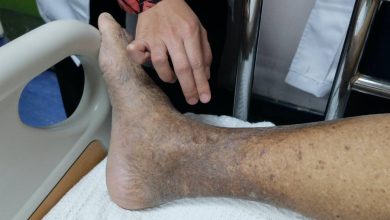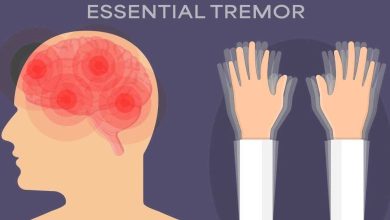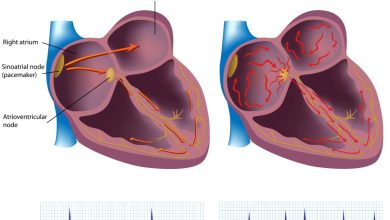Blind Loop Syndrome Causes, Symptoms, Diagnosis and Treatment

What Is Blind Loop Syndrome?
Blind loop syndrome (BLS) commonly referred to in the literature as small intestinal bacterial overgrowth (SIBO) or bacterial overgrowth syndrome (BOS), is a state that occurs when the normal bacterial flora of the small intestine proliferates to numbers that cause significant derangement to the normal physiological processes of digestion and absorption.
The problem of BLS arises when the bacterial colonies residing in the upper gastrointestinal tract begin to grow out of control or are altered in their makeup thereby creating a burden on the normal physiological processes occurring in the small intestine.
This results in problems inclusive of but not restricted to vitamin B12 deficiency, fat malabsorption and steatorrhea, fat-soluble vitamin deficiencies and intestinal wall injury.
How does blind loop syndrome affect digestion?
Digestion is your body’s process of breaking down food and absorbing nutrients for energy. Food moves from your stomach to your small intestine and from there into your large intestine, which includes your colon, rectum and anus. Food then leaves your body as waste (poop).
Your body absorbs most of the nutrients from food in your small intestine. But if you have blind loop syndrome, your digestive process doesn’t work as it should. Food bypasses part of your small intestine and may get stuck in your digestive tract. So, it doesn’t get fully broken down or absorbed. This gives bacteria more opportunity to feed on it and multiply.
What’s the difference between blind loop syndrome and small intestinal bacterial overgrowth (SIBO)?
Blind loop syndrome is one way that SIBO (small intestinal bacterial overgrowth) can occur. The overgrowth of bacteria in your small intestine is what causes the symptoms of blind loop syndrome. SIBO can also occur from chemical imbalances in your gut, but blind loop syndrome causes SIBO for structural reasons. Bacteria overgrow because a section of your intestine is stagnant.
A Blind Loop Can Cause Complications, Including:
- Poor absorption of fats
- Damage to the intestinal lining
- Vitamin B-12 deficiency
- Brittle bones (osteoporosis)
- Kidney stones
Causes Of Blind Loop Syndrome:
Blind loop syndrome can be caused by:
- Complications of abdominal surgery, including gastric bypass for obesity and gastrectomy to treat peptic ulcers and stomach cancer
- Structural problems in and around your small intestine including scar tissue (intestinal adhesions) on the outside of the bowel and small, bulging pouches of tissue that protrude through the intestinal wall (diverticulosis)
- Certain medical conditions, including Crohn’s disease, radiation enteritis, scleroderma, celiac disease, obesity and diabetes, can slow movement (motility) of food and waste products through the small intestine
The Following Factors Increase The Probability Of Developing Blind Loop Syndrome:
- Gastric surgery for obesity or ulcers
- A structural defect in the small intestine
- An injury to the small intestine
- An abnormal passageway (fistula) between two segments of bowel
- Crohn’s disease, intestinal lymphoma or scleroderma involving the small intestine
- History of radiation therapy to the abdomen
- Diabetes
- Diverticulosis of the small intestine
Symptoms Of Blind Loop Syndrome:
Signs and symptoms of blind loop syndrome include:
- Loss of appetite
- Nausea
- Flatulence
- Diarrhea
- Fullness after a meal
- Fatty stools (steatorrhea)
- Unintentional weight loss
- Generalised weakness
Diagnosis Of Blind Loop Syndrome:
The following tests help in diagnosing blind loop syndrome:
- Abdominal X-ray
- Abdominal CT scan
- Barium X-ray of the small intestine, which may reveal a blind loop, diverticulosis, a narrowing (stricture) of the intestine or other structural problems, as well as slow transit times that can cause bacterial overgrowth.
- CT enterography, which helps detect inflammation or structural problems in the bowel and abnormalities in other organs, such as the pancreas.
- Hydrogen breath test, which measures the amount of hydrogen that one, breathes out after drinking a mixture of glucose and water.
- D-xylose breath test, which, measures the amount of carbon dioxide in the breath.
- Bile acid breath test.
- Quantitative fecal fat test, to determine how well small intestine absorbs fat.
- Small intestine aspirate and fluid culture.
Treatment Of Blind Loop Syndrome:
Treatments for blind loop syndrome include:
- Antibiotics: Antibiotics are the most common treatment for blind loop syndrome. These medicines destroy the overgrowth of bacteria and clear up infections. Most people start absorbing nutrients again after a few weeks or months of antibiotics.
- Dietary changes: Eating foods high in protein, calories and healthy fats can help you regain weight. Talk to your healthcare provider about maintaining a healthy weight for you.
- Surgery: Antibiotics treat the effects of blind loop syndrome, but they don’t address the underlying problem. You may need surgery to fix the problem in your intestines permanently.
- Vitamin supplements: Your healthcare provider may recommend vitamin B12 supplements if you have vitamin deficiency anemia or any nutritional shortages.
Does blind loop syndrome always require treatment?
Blind loop syndrome requires treatment. The bacterial overgrowth won’t go away on its own. In fact, the problem will probably get worse over time and may lead to more serious health complications. So, even if your symptoms are mild, it’s important to get the right care.
Prevention
How can I prevent blind loop syndrome?
There’s no way to prevent blind loop syndrome. But if you need gastrointestinal surgery, ask your healthcare provider how the procedure will be performed. Find out if there’s a risk of developing blind loop syndrome.
If I’ve had gastrointestinal surgery in the past, will I get blind loop syndrome?
If you’ve had gastrointestinal surgery in the past, it’s pretty unlikely that you’ll develop blind loop syndrome. But even long-ago surgery increases your risk. Keep an eye out for digestive problems and talk to your healthcare provider right away if you notice anything abnormal.
By : Natural Health News




